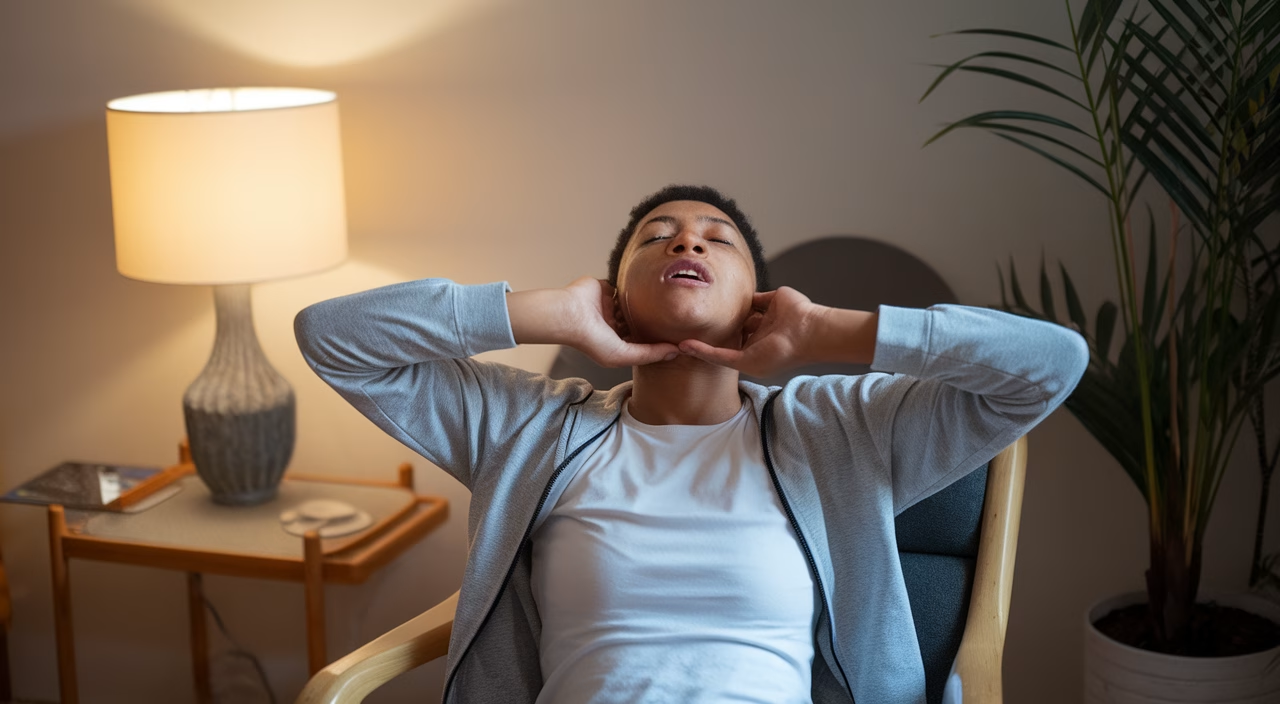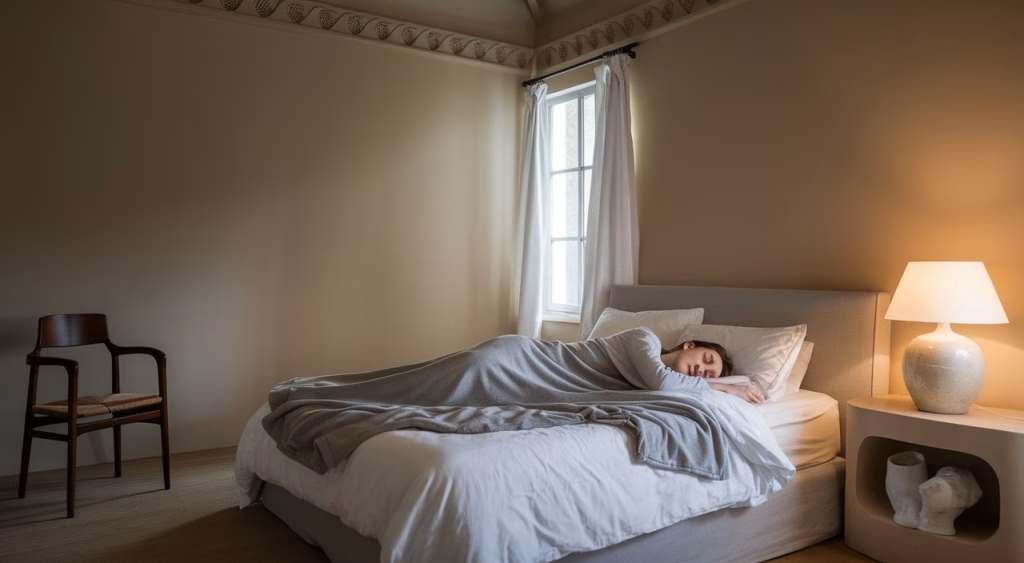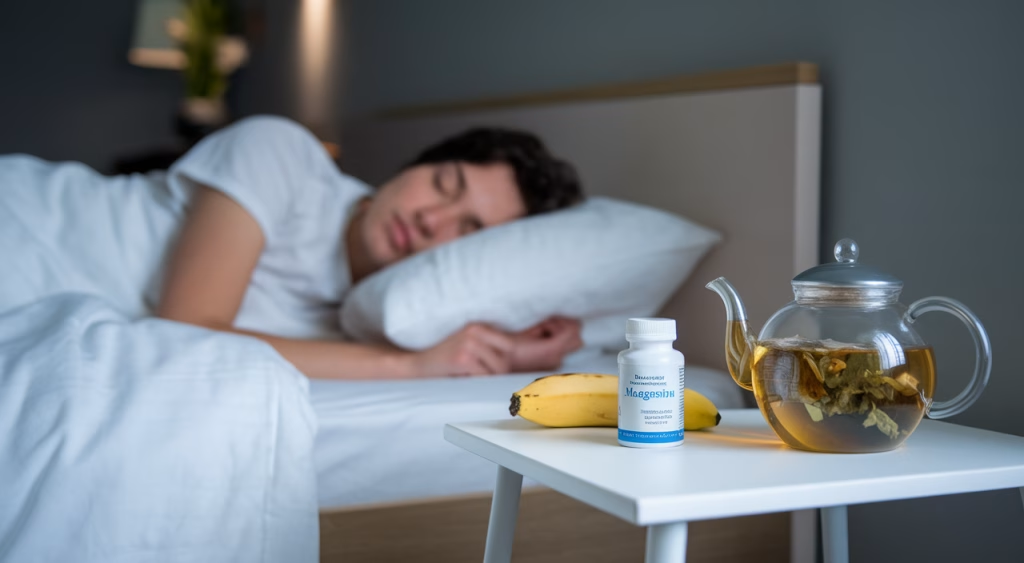How Can I Naturally and Effectively Stop Snoring?
The good news is there are many proven ways to stop snoring without surgery or medications. The key lies in understanding what’s causing your snoring and taking a multi-step approach—working on lifestyle changes, exploring natural remedies, and trying effective snoring devices for your unique situation. Let’s explore each proven method to help you achieve quiet nights.
TL;DR – Quick Summary of Natural & Effective Ways to Stop Snoring
- 🔹 Identify the cause: Snoring often stems from nasal obstruction, poor muscle tone, or sleeping positions.
- 🔹 Try natural remedies: Elevating your head, maintaining hydration, and sleeping on your side can produce noticeable improvements.
- 🔹 Lifestyle changes matter: Losing weight, reducing alcohol consumption, and improving sleep hygiene help prevent snoring long-term.
- 🔹 Snoring devices can assist: Mouthpieces, nasal strips, and anti-snore pillows are non-invasive snoring treatments worth exploring.
- 🔹 Medical solutions exist: For chronic or severe snoring, CPAP therapy and minor surgical options can offer relief.
Introduction to Snoring Issues
Snoring can feel like a minor nuisance—but for many, it’s the soundtrack to a disrupted night. Whether you’re the snorer being elbowed in the ribs or the partner lying awake beside them, snoring isn’t just noise—it’s a signal that something deeper may be going on.
Medically, snoring occurs when airflow through the mouth or nose is partially blocked during sleep. This disrupted airflow makes surrounding tissues vibrate, creating the familiar sound of snoring. Though common, especially among adults over 40, chronic snoring can lead to daytime fatigue, strained relationships, and even point to sleep apnea or other underlying conditions.
In our practice, we’ve seen countless couples walk in frustrated, weary, and desperate for a solution to stop snoring. Fortunately, with the right support and approach, snoring can be managed—and often resolved altogether. So let’s explore how to help you or your loved one sleep soundly again.
Understanding the Causes of Snoring
Before we dive into solutions, it’s important to understand why snoring happens in the first place. The cause determines the cure, and that’s where many generic ‘snore-stopping hacks’ fall flat.
Common causes include:
- Obstructed Nasal Airway: Allergies, sinus infections, or a deviated septum can block airflow and force mouth breathing, which increases snoring.
- Poor Muscle Tone: As we age or gain weight, throat and tongue muscles relax more during sleep, allowing them to collapse into the airway.
- Sleeping Position: Lying flat on your back can cause the tongue to fall backward into your throat.
- Alcohol and Sedatives: These relax throat muscles too much, increasing the risk of airway blockage.
- Obesity: Excess tissue around the neck physically narrows the airway, contributing to snoring.
In short: snoring isn’t always the same problem for everyone. That’s why a personalized path—rooted in evidence and guided by experience—is key to finding the best snoring solutions for your situation.
Lifestyle Changes and Natural Remedies for Snoring
Sometimes, the simplest changes can have surprising impact. Here are natural remedies for snoring that actually work—ones we regularly recommend in clinical settings:
1. Weight Loss and Diet Adjustments
Extra weight—particularly in the neck—can narrow your airway and increase the likelihood of snoring. Losing even a small amount of weight may reduce or eliminate snoring completely. This is one of the most effective long-term snoring solutions.
2. Sleep Position: No More Sleeping on Your Back
Back sleeping is a common culprit. Try sleeping on your side instead. If you roll back during the night, a body pillow or even a tennis ball sewn to the back of your pajamas can help keep you in position—a trick as old as time, and weirdly effective for snoring prevention.
3. Stay Hydrated
When dehydrated, the secretions in your nose and soft palate become stickier, leading to more snoring. Aim for 6–8 glasses of water daily, especially before bedtime. This simple natural remedy can significantly reduce snoring intensity.
4. Throat Exercises for Snoring
Your throat is a muscle—and like any muscle, it can be toned. Simple vocal exercises, humming, or even playing wind instruments can help strengthen throat muscles and reduce snoring. One easy method: say the vowel sounds (a-e-i-o-u) out loud for three minutes, twice per day. It’s awkward at first, but remarkably effective over a few weeks.
5. Avoid Alcohol and Sedatives
Stop consuming these 2–3 hours before bedtime. They relax the muscles in your throat, increasing soft tissue collapse and making snoring worse.
6. Regular Sleep Schedule
Irregular sleep patterns can increase muscle floppiness during slumber. Going to bed and waking up at the same time daily helps your body maintain better muscle tone at night, naturally reducing snoring.
These simple, natural remedies for snoring don’t require medications or expensive gadgets—and they often provide powerful results for preventing snoring long-term.
Recommended Snoring Devices and Products
For many snorers, natural strategies and lifestyle changes aren’t quite enough—which is where non-invasive snoring treatments and devices come in. Here are the most effective snoring devices we frequently recommend:
Mouthpieces and Mandibular Advancement Devices (MADs)
These work by gently moving your lower jaw forward to keep your airway open. They’re highly effective snoring devices for mild to moderate snoring and sleep apnea, helping you stop snoring immediately.
Nasal Dilators and Strips
Nasal strips stick to the outside of your nose to widen nostrils, ideal for congestion-based snorers. Internal nasal dilators are inserted into the nostrils and offer more direct support for better airflow.
Anti-Snore Pillows
Designed to support the neck and head in a side-sleeping position, these snoring devices prevent tongue collapse and promote better breathing alignment throughout the night.
CPAP Machines (for Severe Cases)
While primarily used for obstructive sleep apnea, CPAP devices can also reduce snoring drastically. However, many find them cumbersome if snoring is the only concern.
Don’t be afraid to test several options—it’s often a mix of solutions that works best to stop snoring effectively. Here’s a rough idea of typical pricing:
Cost Guide for Snoring Solutions in Singapore
| Type of Solution | Low-End Range | Mid-Range | High-End Range |
|---|---|---|---|
| Anti-snore pillows | $25–40 | $50–90 | $100–150 |
| MAD mouthpieces | $30–60 | $100–200 | $400+ |
| CPAP machines | $450+ | $1,000+ | $2,500+ |
| Nasal devices/strips | $10–20 | $30–50 | $80+ |
Advanced Treatments and Medical Solutions
When natural remedies and lifestyle changes don’t help you stop snoring, it may be time to talk with a sleep specialist or ENT. There are evidence-backed non-invasive snoring treatments for more serious or persistent issues, including:
1. CPAP Therapy for Sleep Apnea
If your snoring is loud and accompanied by gasping or silent pauses in breathing, you might have obstructive sleep apnea. CPAP is the gold-standard therapy in such cases and can effectively stop snoring caused by sleep apnea.
2. Radiofrequency Ablation
This non-invasive procedure uses heat to shrink soft tissue in the palate and tongue base, reducing vibration and airway obstruction. It’s one of the most effective non-invasive snoring treatments available.
3. UPPP Surgery
Uvulopalatopharyngoplasty removes or reshapes tissues in the throat to widen the airway. It’s typically used when other treatments fail and is more invasive than other snoring solutions.
4. Positional Therapy Devices
These wearable tools sense when you roll onto your back and vibrate gently to encourage side-sleeping—like your partner’s elbow, but kinder. They’re excellent for positional snorers.
Every case is unique. We encourage speaking with a specialist to find the safest, most effective path forward that fits your needs and helps you stop snoring for good.
Conclusion: Achieving Quiet Nights Together
Snoring doesn’t just disrupt your sleep—it affects your health, your relationships, and your future well-being. But there’s good news: With the right mix of natural remedies, smart lifestyle changes, and—in some cases—a helpful snoring device or medical consultation, you can stop snoring and achieve restful nights.
Remember this: snoring is a symptom, not a life sentence. Whether you’re searching for the best snoring solutions for couples or researching snoring prevention strategies for better sleep, don’t settle for sleepless nights. You deserve quiet. You deserve rest. And yes—you deserve mornings without complaints. Let’s help you silence the roar, one peaceful breath at a time.
Frequently Asked Questions
- What causes snoring in otherwise healthy people?
Even without underlying illness, snoring can occur due to aging, sleeping position, nasal congestion, or alcohol use, all of which reduce airway space temporarily. - Can snoring be cured permanently?
In many cases, yes—especially with lifestyle changes and consistent use of appropriate devices. For others, medical interventions provide long-term relief. - Do snoring pillows actually work?
For many, yes. They promote side sleeping and align your head and neck, reducing airway collapse overnight. - Are anti-snore mouthpieces uncomfortable?
They may feel strange at first, but most people adjust within a few nights. Custom-fit models tend to be more comfortable and effective. - Is snoring always a sign of sleep apnea?
Not always. While it’s a common symptom, not all snorers have sleep apnea. A sleep study can reveal whether further treatment is needed. - Can children snore?
Yes, and frequent snoring in kids should be evaluated—it may be related to enlarged tonsils, allergies, or sleep apnea. - Do essential oils help with snoring?
Some oils, like eucalyptus or peppermint, may help reduce nasal inflammation but should be part of a broader strategy, not the sole remedy.





